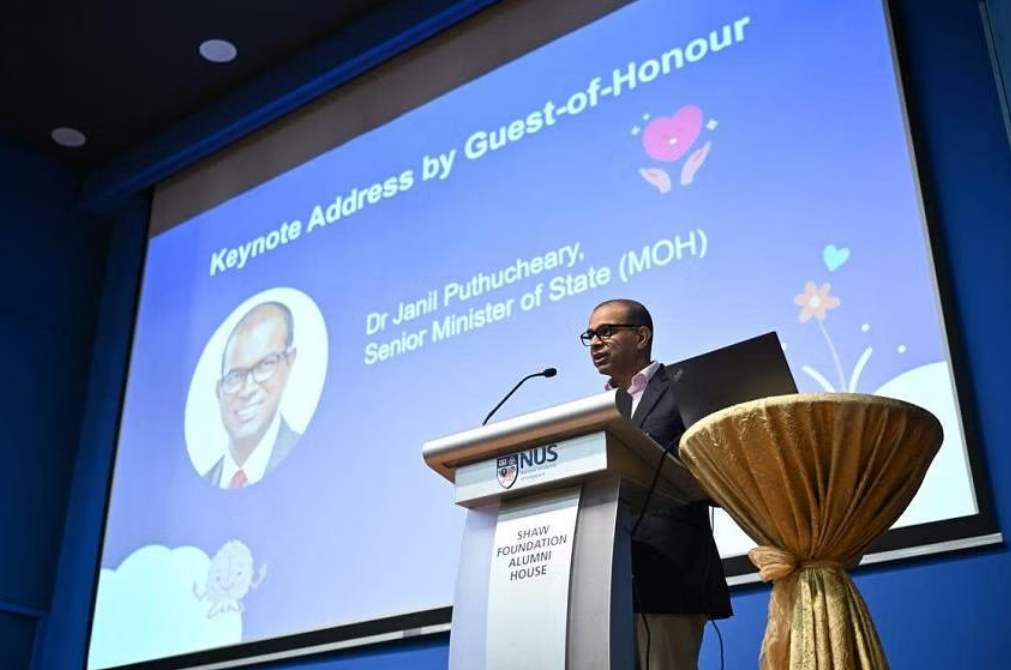Study finds childhood trauma can lead to mental health issues among young adults


SINGAPORE — Traumatic childhood experiences like emotional neglect may lead to a higher prevalence of mental health issues such as anxiety when the child becomes a young adult, says a new study.
Dr Lee Jungup from the National University of Singapore's (NUS) department of social work found that childhood trauma is a risk factor for mental health issues.
The study, which has not been published yet and is under review, found that issues like neglect, cyber bullying and abuse during childhood can lead to depressive and anxiety symptoms in a young adult.
Dr Lee shared the findings of the study at NUS' Social Service Research Centre Conference 2024 on March 20. The conference, focused on youth mental health, also touched on topics like effectiveness of digital well-being initiatives.
Of a sample size of 1,000 students from local universities aged 18 to 30, almost 75 per cent reported experiencing emotional neglect during childhood. This included feeling lonely and not having any casual conversations with their families.
Around 56 per cent said they experienced physical neglect, while around 37 per cent recalled physical abuse in their childhood.
Students with multiple childhood trauma experiences were strongly associated with conditions like depression, anxiety and post-traumatic stress disorder.
[[nid:670401]]
Panellists at the event said that digital tools could be useful in supporting the well-being of young people.
Janice Weng, deputy director at the Ministry of Health Office for Healthcare Transformation (MOHT), said digital solutions alone are inadequate because young people have said they desire human contact. However, anonymity, which digital means can provide, is still highly valued due to stigma.
Manpower challenges will continue to grow with increasing demands, and the use of digital technologies is a sustainable cost-effective way, she added.
MOHT senior manager Caleb Tan said digital solutions can complement in-person support.
He said: "If you face emotional struggles in the middle of the night, who do you call? I can't call my social worker as they would be fast asleep. This is where people can turn to digital platforms."
Speaking at the conference, Senior Minister of State for Health Janil Puthucheary said there are two major factors in Singapore relating to mental health — an individualistic society and the prevalence of social media.
Society is now more fragmented and social networks are smaller despite the availability of online platforms.

Dr Janil noted that people need "human connections that allow us to offload, share, and have a shoulder to cry on". "We have fewer and fewer people like that in our lives. We have to make an effort to find such connections — human, personal, real-world connections."
At the same time, with the "Instagram effect", people are faced with a lot more information about everyone else's socialisation and lives, which may not be correctly represented, he noted.
Dr Janil said young people are a receptive audience who want to do something for themselves, and a collective approach is needed to tackle the issue.
The Interagency Taskforce on Mental Health and Well-being was set up in 2021 to oversee national mental health efforts, and it launched the National Mental Health and Well-being Strategy in October 2023.
Youth mental health has been under the spotlight recently, with Deputy Prime Minister Lawrence Wong announcing several plans to make mental health a top national priority. These include boosting the number of mental health professionals by up to 40 per cent by 2030, and introducing mental health services to all polyclinics and 900 more general practitioner clinics.
Dr Janil said efforts should be holistic — ensuring young people have the resilience to deal with mental health issues before these become a problem, while also identifying signs of distress in youth and supporting those who are struggling.
[[nid:671679]]
Dr S. Vasoo, emeritus professor at the NUS department of social work, said more resources should be deployed during early intervention, and called for a focus to identify those who are potentially vulnerable and how they can be helped earlier.
"The earlier we intervene, the better prospects for them to become more resilient in dealing with their problems," he added.
Associate Professor Eddie Tong, director of NUS' Social Service Research Centre, said: "I personally do not feel that youth are suffering mental health issues because they are so-called 'soft', lacking resilience in their character or lacking creativity and drive in problem-solving.
"Yes, some youth need more help than others, but one also needs to understand the broader context that our youth are in, that could feed into their sense of pessimism and insecurity, such as over cost of living issues, academic worries, career prospect concerns and even climate change."
This article was first published in The Straits Times. Permission required for reproduction.